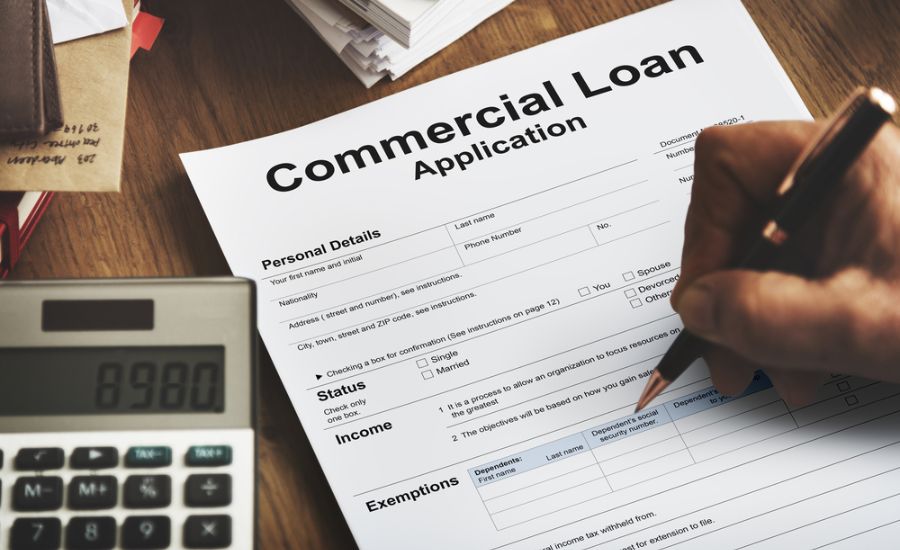Commercial hard money lenders play a vital role in the real estate market, providing an alternative source of funding for investors and developers who need quick access to capital. Unlike traditional bank loans, which can take weeks or even months to process, commercial hard money loans are designed for speed and flexibility.
This article will guide you through the step-by-step process of how commercial hard money lenders operate, helping you understand their unique approach to lending.
What Are Commercial Hard Money Lenders?

Commercial hard money lenders are private individuals or companies that provide short-term loans secured by real estate. Unlike conventional loans offered by banks, these hard money construction loans are primarily based on the value of the property being used as collateral rather than the borrower’s creditworthiness.
This makes them an attractive option for investors looking for quick, flexible financing solutions, especially when traditional loans are not feasible. For example, companies like PB Financial private money lenders specialize in offering customized loan solutions for those seeking to finance real estate projects quickly.
Understanding how commercial hard money lenders work involves a few key steps, from application to closing and beyond. Let’s break down the process step-by-step.
Steps in the Commercial Hard Money Lending Process
There are usually six main steps involved in securing a commercial hard money loan:
Step 1: Initial Inquiry and Pre-Qualification
The first step in working with commercial hard money lenders is the initial inquiry and pre-qualification. At this stage, potential borrowers reach out to a lender to discuss their needs and determine if they meet the lender’s basic criteria.
Contacting the Lender
The borrower contacts a commercial hard money lender to discuss the potential deal. This conversation often includes details about the property, the purpose of the loan, and the borrower’s overall financial situation.
Pre-Qualification
The lender conducts a preliminary assessment to determine if the borrower qualifies for a loan. This assessment typically focuses on the value of the property and the borrower’s equity in it, rather than the borrower’s credit score or income.
This step is crucial because it helps both the lender and the borrower understand whether they are a good fit for each other.
Step 2: Loan Application and Documentation

Once pre-qualified, the borrower moves forward with the formal loan application. This stage involves gathering and submitting all necessary documentation to the lender.
Filling Out the Application
The borrower completes a detailed loan application form, providing information about themselves and the property. This includes details such as the property’s purchase price, expected renovation costs, and the borrower’s exit strategy (how they plan to repay the loan).
Submitting Required Documents
The borrower must also submit various documents, including proof of ownership, property appraisals, and renovation plans. Commercial hard money lenders care about the property’s value and its income potential. So, they require lots of documentation.
This stage is faster than traditional lending. Hard money lenders value speed and flexibility.
Step 3: Property Evaluation and Loan Structuring
After getting the application and documents, the lender evaluates the property. Then, it structures the loan accordingly.
Property Appraisal and Inspection
The lender will usually order an independent appraisal and may conduct a physical inspection of the property. The main focus is on the property’s current and after-repair value (ARV), as this determines how much the lender is willing to loan.
Loan Terms and Conditions
Based on the appraisal and other factors, the lender proposes loan terms. These terms include the loan amount, interest rate, repayment schedule, and any additional fees. Commercial hard money loans for bad credit are riskier than traditional loans. So, they often have higher interest rates.
This step is where the flexibility of commercial hard money lenders shines, as they can tailor the loan to suit the specific needs of the borrower.
Step 4: Loan Approval and Commitment
If the borrower agrees to the proposed terms, the next step is loan approval and commitment. This phase solidifies the lender’s intent to finance the loan, subject to final due diligence.
Issuance of a Loan Commitment Letter
The lender issues a loan commitment letter outlining the agreed terms and conditions. This letter is a formal offer. It includes conditions to meet before closing.
Meeting Contingencies
The borrower works to meet any contingencies outlined in the commitment letter. These might include additional inspections, clearing any title issues, or obtaining necessary insurance.
The commitment phase is critical. It is a formal agreement between both parties. It sets the stage for the final loan closing.
Step 5: Closing the Loan
Closing is the final step in the commercial hard money lending process, where the loan is finalized, and funds are disbursed.
Final Review and Documentation
Before closing, the lender conducts a final review to ensure all conditions have been met. The borrower must sign various legal documents, including the promissory note, deed of trust, and loan agreement.
Funding the Loan
Once all paperwork is complete and signed, the lender releases the funds. In most cases, the funds are transferred directly to the borrower or to an escrow account if specific conditions need to be met.
This step completes the lending process. It allows the borrower to proceed with their real estate investment.
Step 6: Post-Closing and Loan Servicing

After the loan is closed and funds are disbursed, the lender continues to monitor the loan through its term.
Loan Servicing
Commercial hard money lenders usually service the loan. This means they collect monthly payments and ensure compliance with the loan terms.
Property Management and Exit Strategy
The borrower will manage the property as planned. This may involve renovation, rental, or resale. The exit strategy is crucial. It determines how the borrower will repay the loan. This could be through refinancing, a property sale, or another method.
In this phase, the lender and borrower must communicate. It is key to keeping the loan in good standing until it is fully repaid.
The Role of Commercial Hard Money Lenders in Real Estate Investing
Commercial hard money lenders are vital to the real estate market. They provide flexible, accessible loans that meet the needs of various borrowers.
Whether you’re a seasoned investor or a first-time developer, know how these lenders work. It can help you make better decisions in real estate financing.
Looking for more tips to help you out? Check out what else we have available on our blog!
